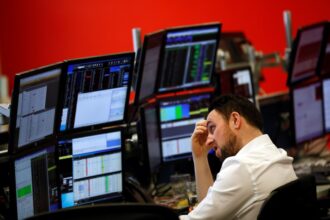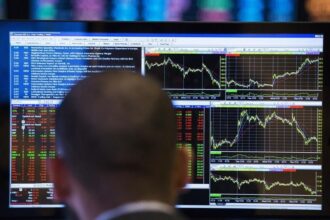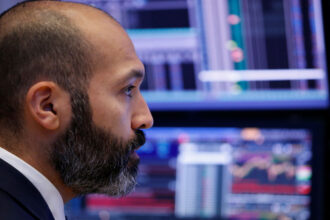© Reuters. FILE PHOTO: A Volkswagen logo is seen as it launches its ID.6 and ID.6 CROZZ SUV at a world premiere ahead of the Shanghai Auto Show, in Shanghai, China April 18, 2021. REUTERS/Aly Song/File Photo
SHANGHAI (Reuters) – A senior Volkswagen AG (OTC:) China executive reiterated on Saturday the German automaker’s commitment to quickening the pace of electrification in the world’s second largest economy despite issues such as intensified competition and weak demand.
VW plans to increase the number of charging posts for electric vehicles in China to 17,000 by 2025, as it planned to invest 15 billion euros ($16.26 billion) in the country on electric mobility together with its three joint ventures by 2024, Stefan Mecha, chief executive of the Volkswagen (ETR:) brand in China, told China’s EV 100 forum in Beijing.
“The market is flush with new, highly competitive players but strong competition simply motivates us to constantly innovate and improve,” Mecha said.
He added that despite softer short term demand in China, the company is confident that there would be a recovery.
In February, Chinese electrified vehicle maker BYD outsold the Volkswagen-branded cars to be the best-selling passenger car brand in the world’s largest auto market for the second month in four.
Mecha also urged China to extend a purchase tax exemption on new energy vehicles (NEVs), which include both pure electric and plug-in hybrid cars, beyond this year as part of the policy support for the sector.
In September, China extended the tax exemption on such vehicles by a year to the end of 2023.
The government is studying policies to promote auto consumption and eliminate backward automakers as China’s NEV market faces challenges of weak domestic demand, Xin Guobin, vice minister at Ministry of Industry and Information Technology, said at the same forum.
Xin also urged the industry to enhance capabilities in securing supplies of metals such as lithium, cobalt and nickel as it also faces threats of global trade protectionism.
($1 = 0.9226 euros)
Read the full article here










